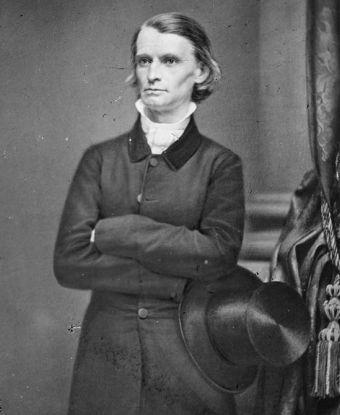Last updated: June 29, 2016
Person
Henry Wise

A six-term U.S. Congressman, diplomat, governor and Confederate army officer from Virginia, Henry Alexander Wise was known for his unabashed defense of slavery and states' rights. He gained notoriety as a result of John Brown's raid on Harpers Ferry, Virginia (now West Virginia).
After practicing law in Nashville, Tennessee, Wise returned to Virginia and ran successfully for a seat in the U.S. House of Representatives in 1833 as a Jacksonian Democrat. He broke with Jackson over the re-chartering of the Second Bank of the United States, and the passage of the so-called Force Bill. Wise transferred his allegiance to the Whig Party and supported native son John Tyler for Vice President in 1840. In 1844, President Tyler appointed him Minister to Brazil, where he served until 1847.
Returning to the Democratic Party, Wise won election as Governor of Virginia in 1855, serving from 1856 to 1860. Following John Brown's unsuccessful raid on Harpers Ferry, Wise decided not to commute Brown's death sentence after having visited him in prison. With the country on the brink of civil war, Wise cajoled members of the Virginia Convention of 1861 to immediately secede. Though no longer governor, he boasted that Virginia militia units were already en route to seize the federal arsenal at Harpers Ferry, even though Convention members had yet to vote for secession.
Without prior military experience, Wise joined the Confederate army at the rank of brigadier general. While his lack of experience was readily apparent in his initial battlefield commands at Kanawha Valley (1861) and Roanoke Island (1862), Wise's brigade fought well during the Petersburg and Appomattox Campaigns (1864-1865). At Appomattox Court House on April 9, 1865, he urged Lee to surrender after Confederate troops failed to break through Union lines.
After the war, Wise, unable to reclaim his plantation outside Norfolk, settled in Richmond and resumed his law practice. He served on a commission to fix the boundary line between Virginia and Maryland. In 1872, Wise published a book based on his public service, Seven Decades of the Union.
